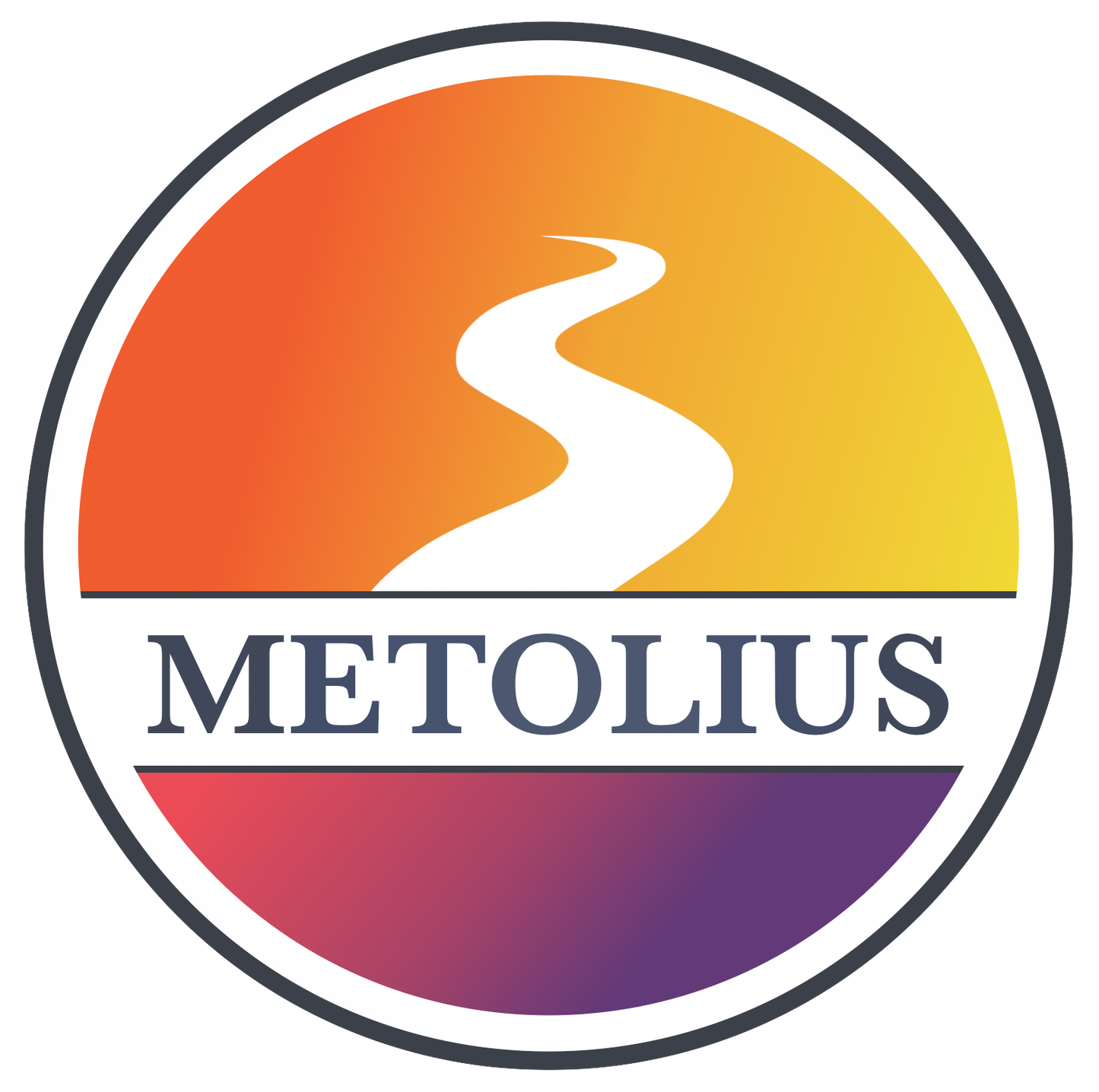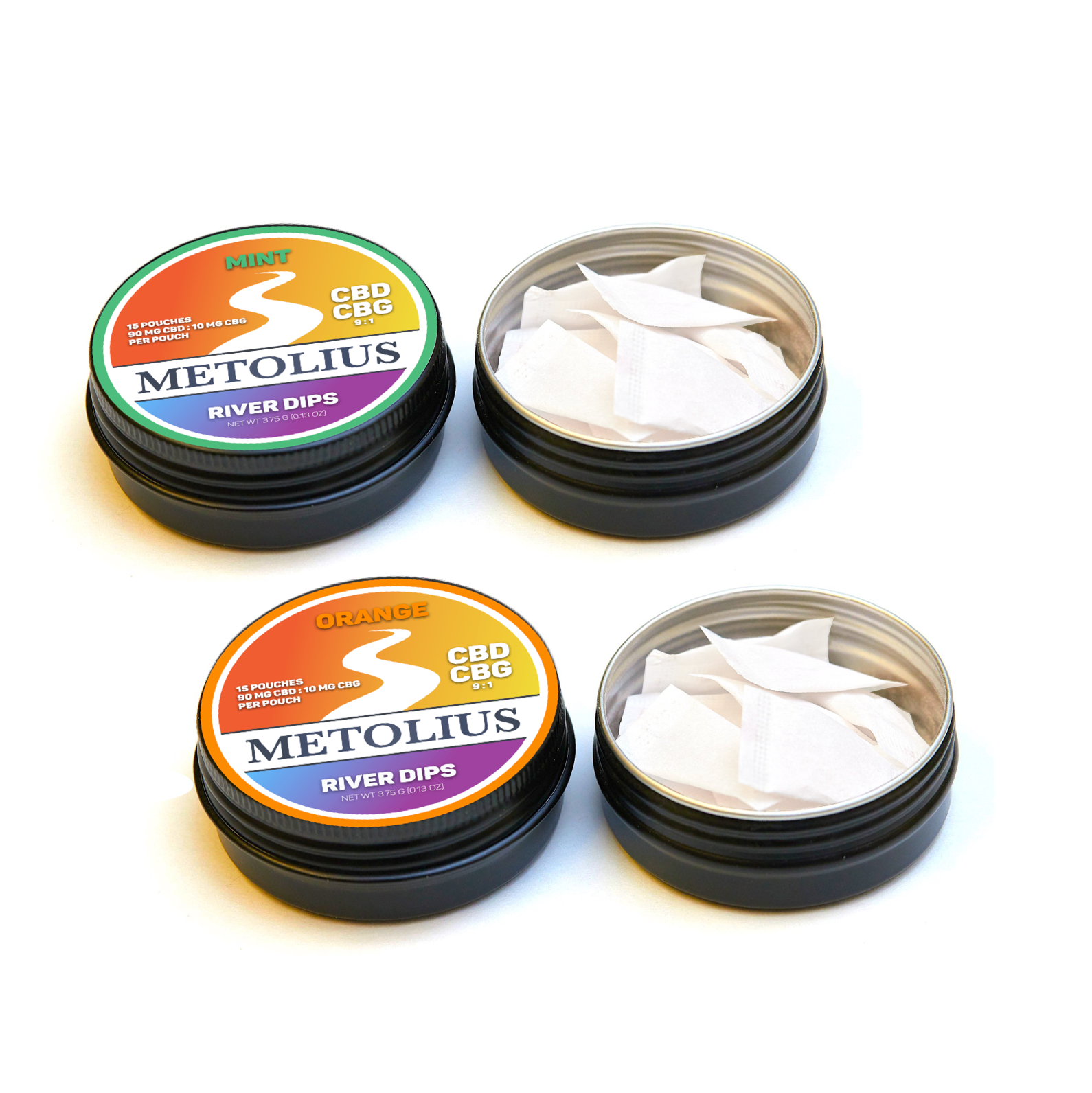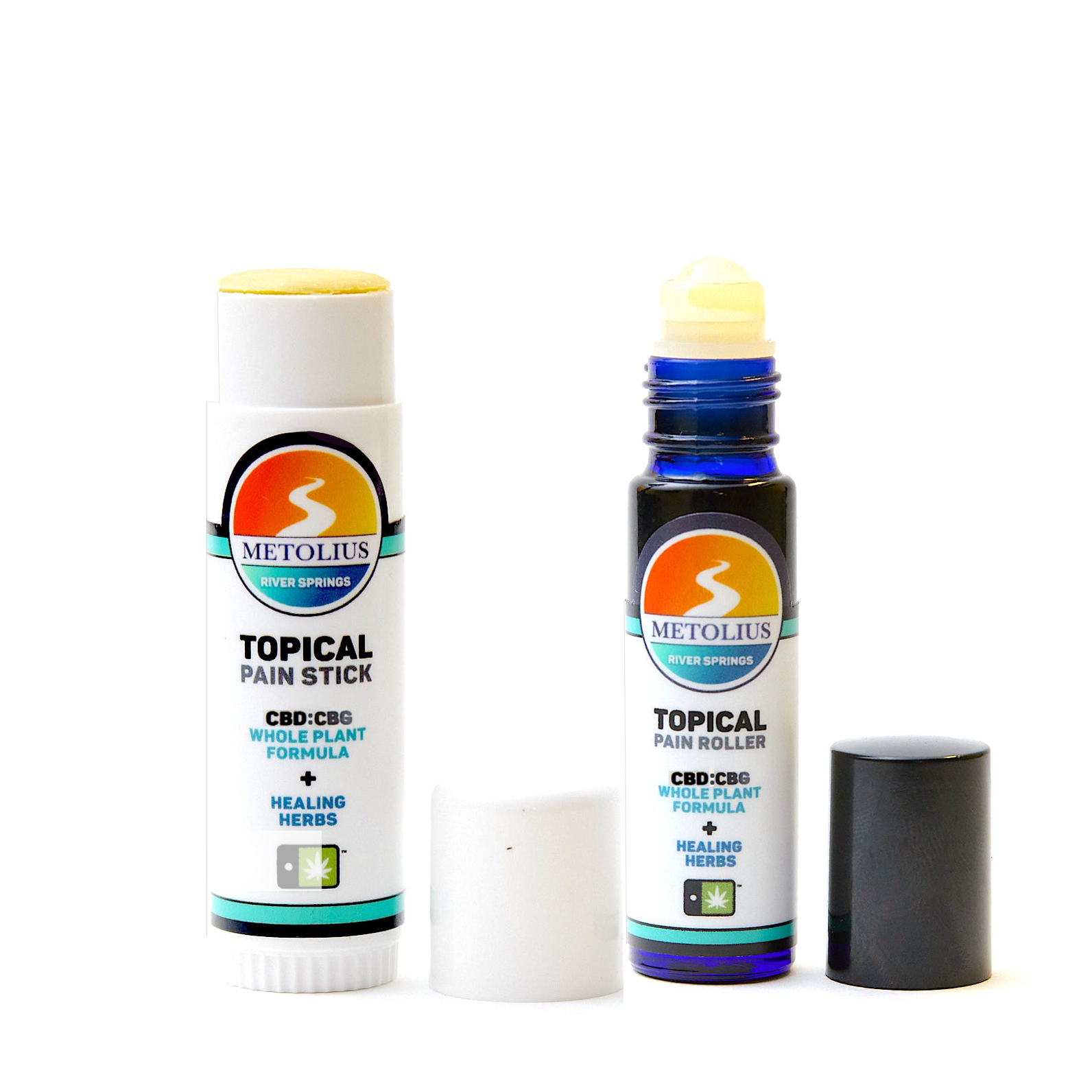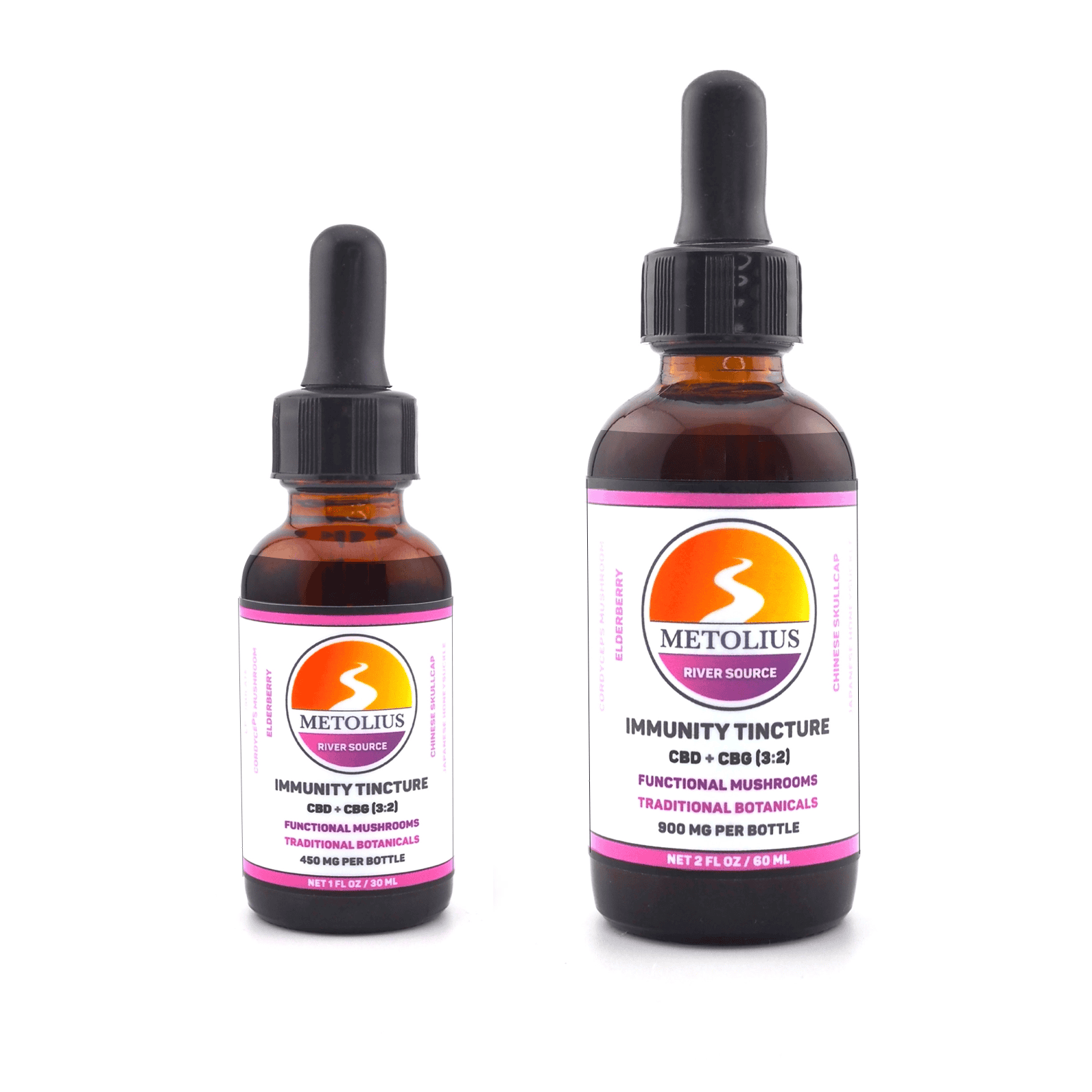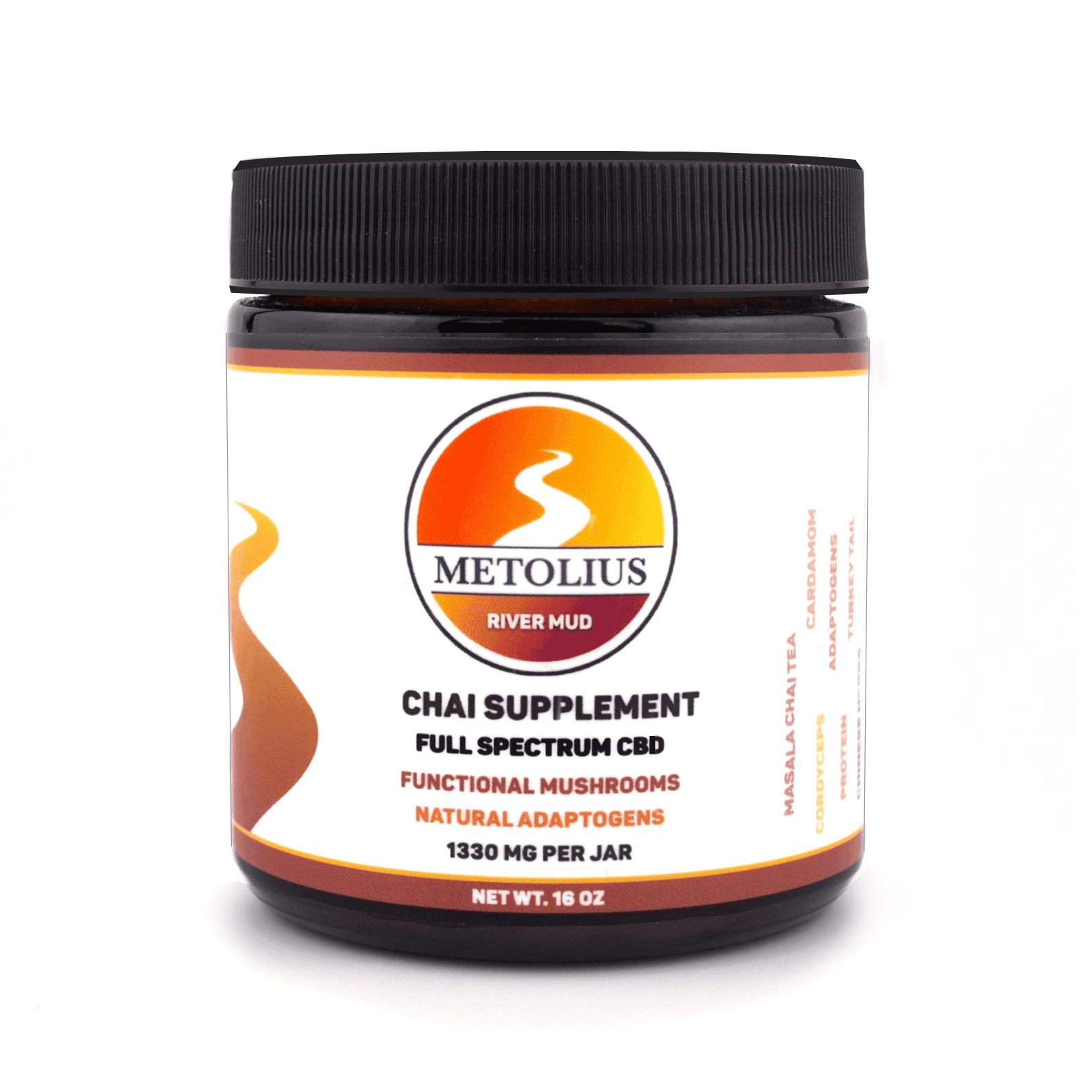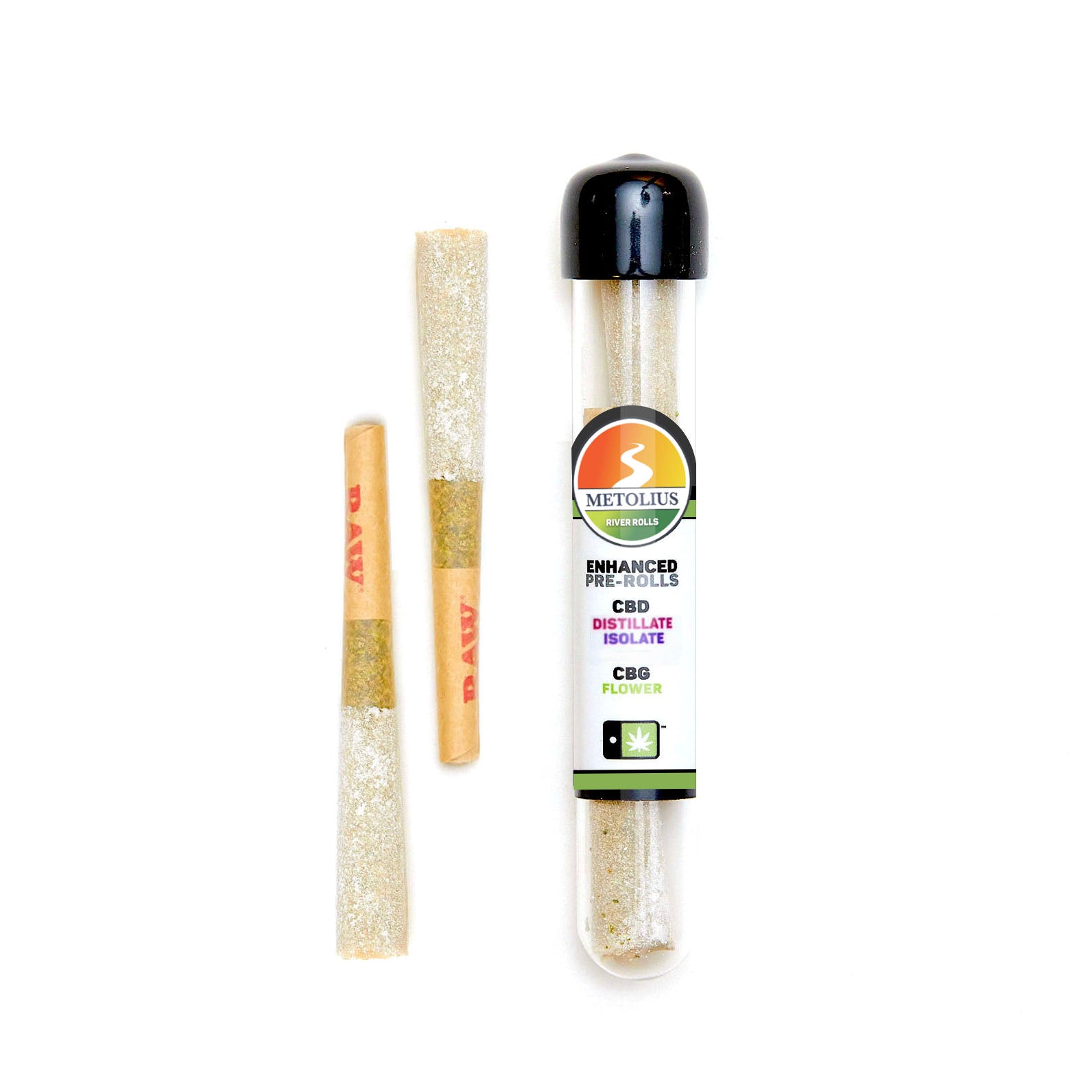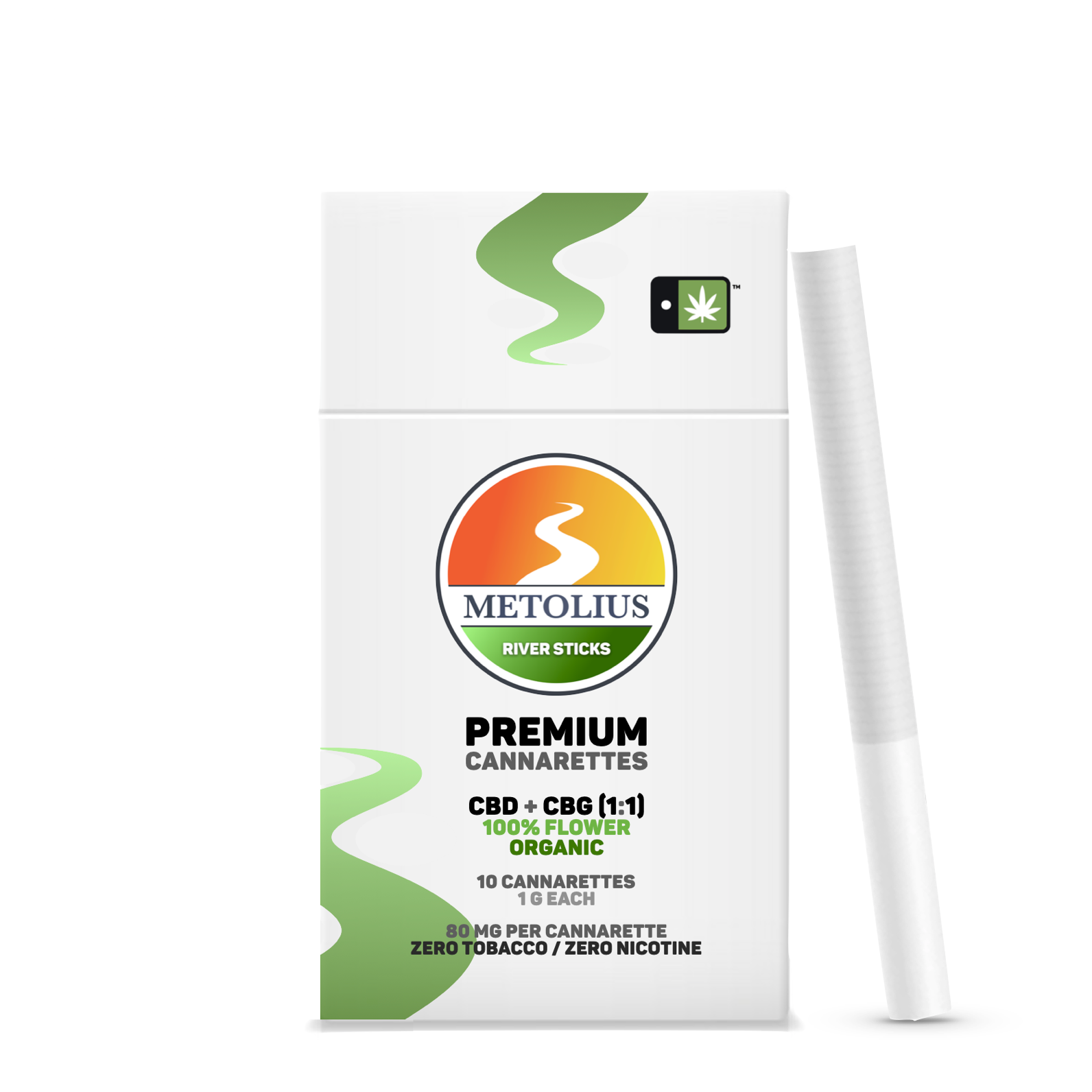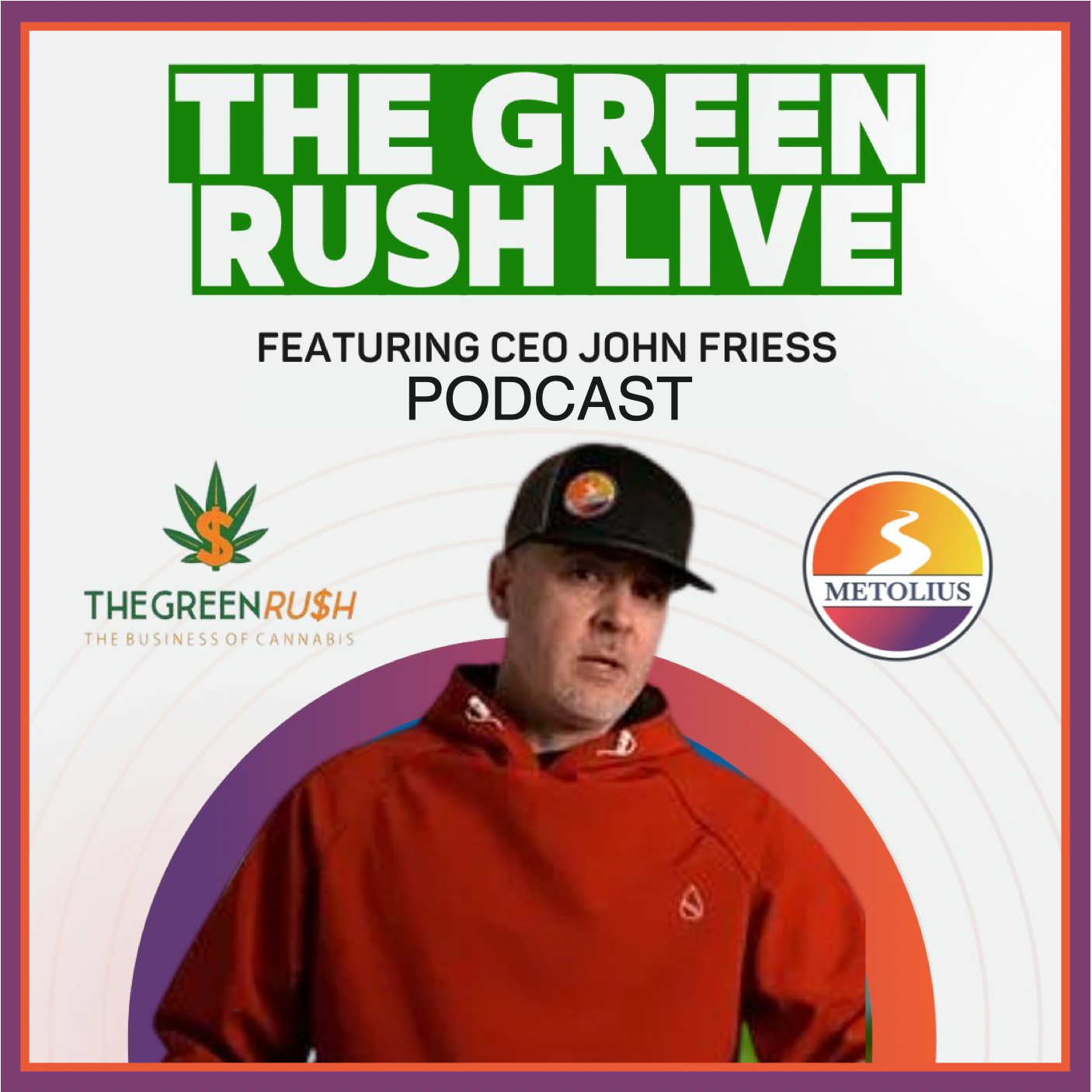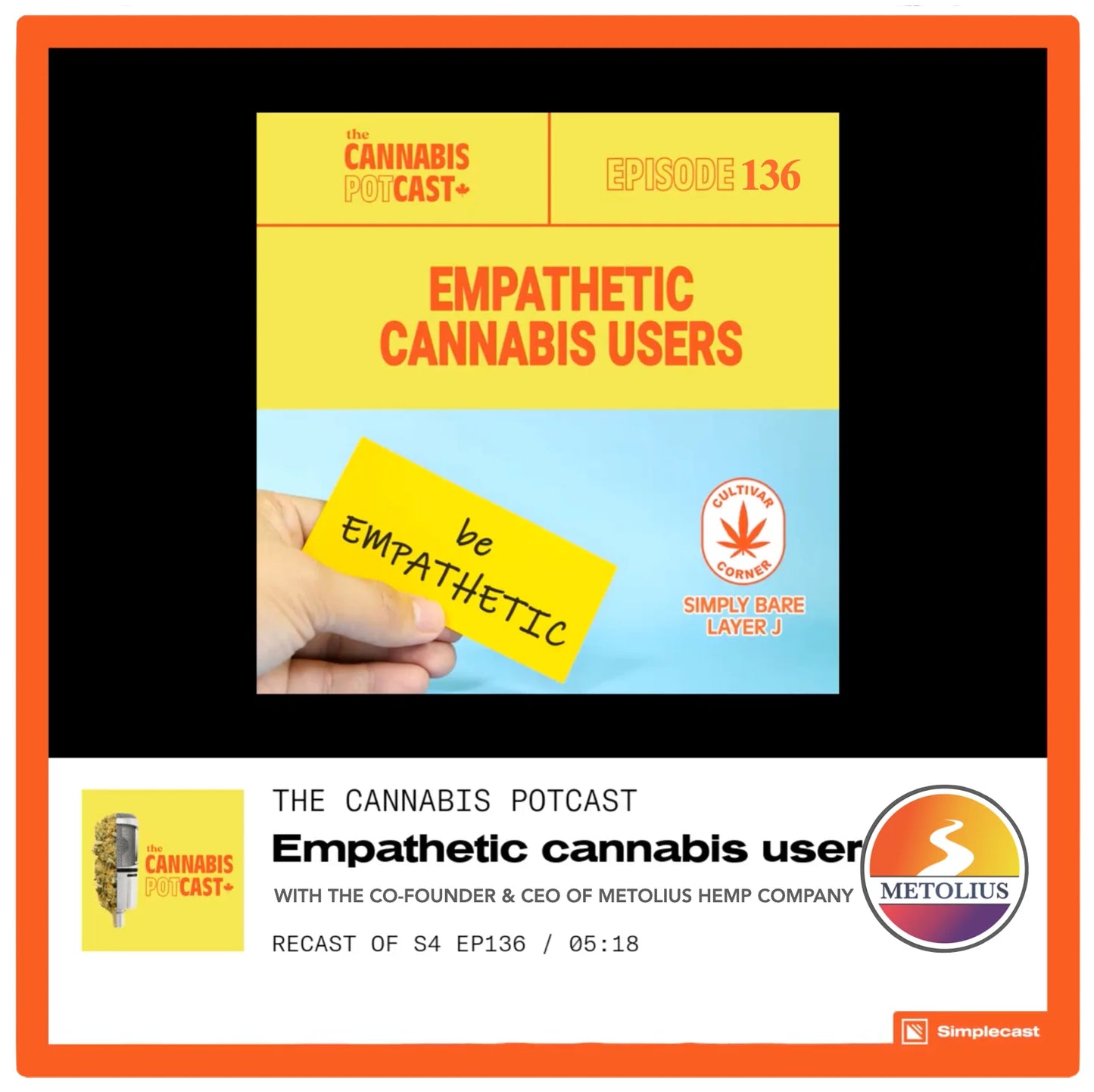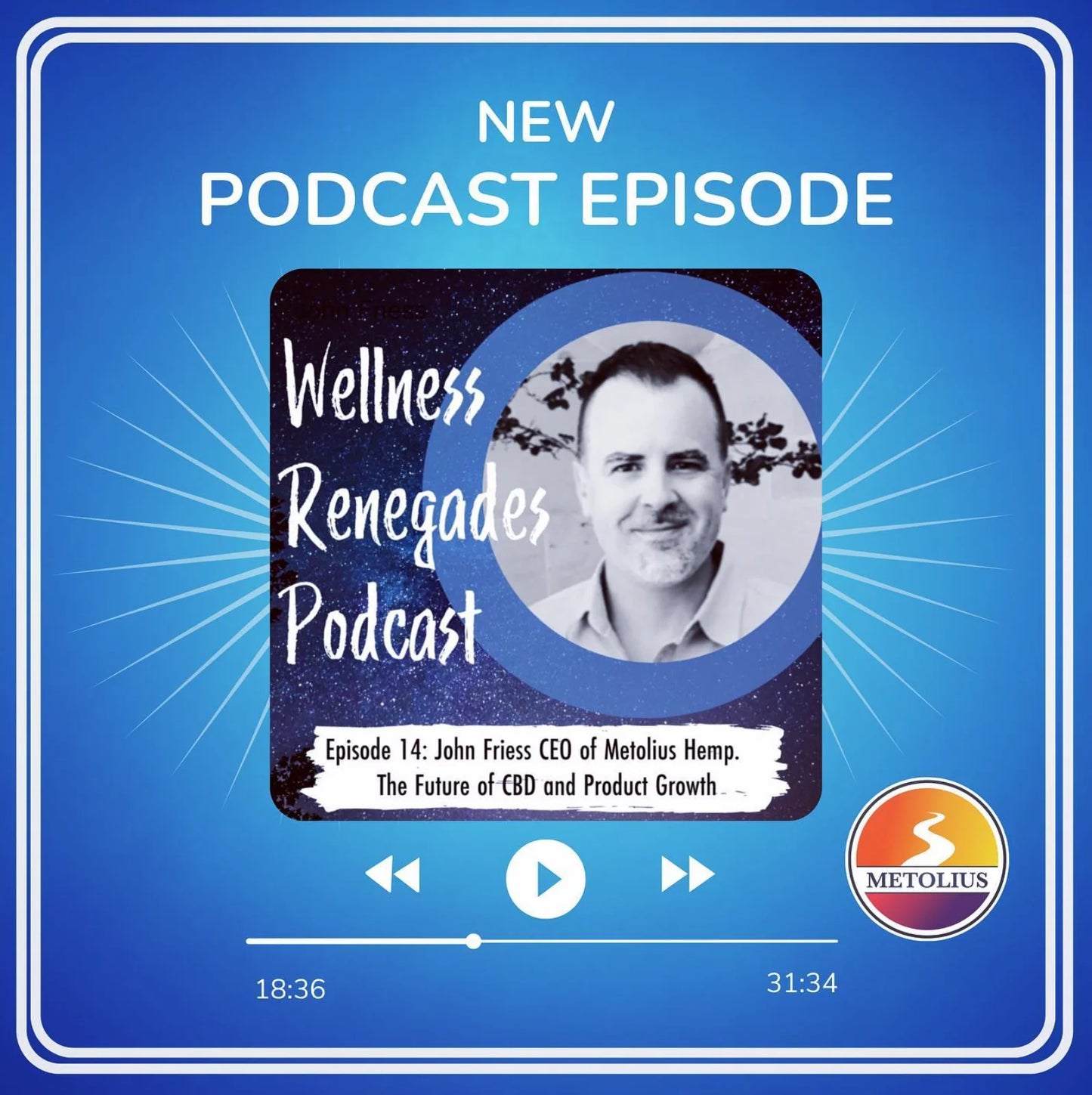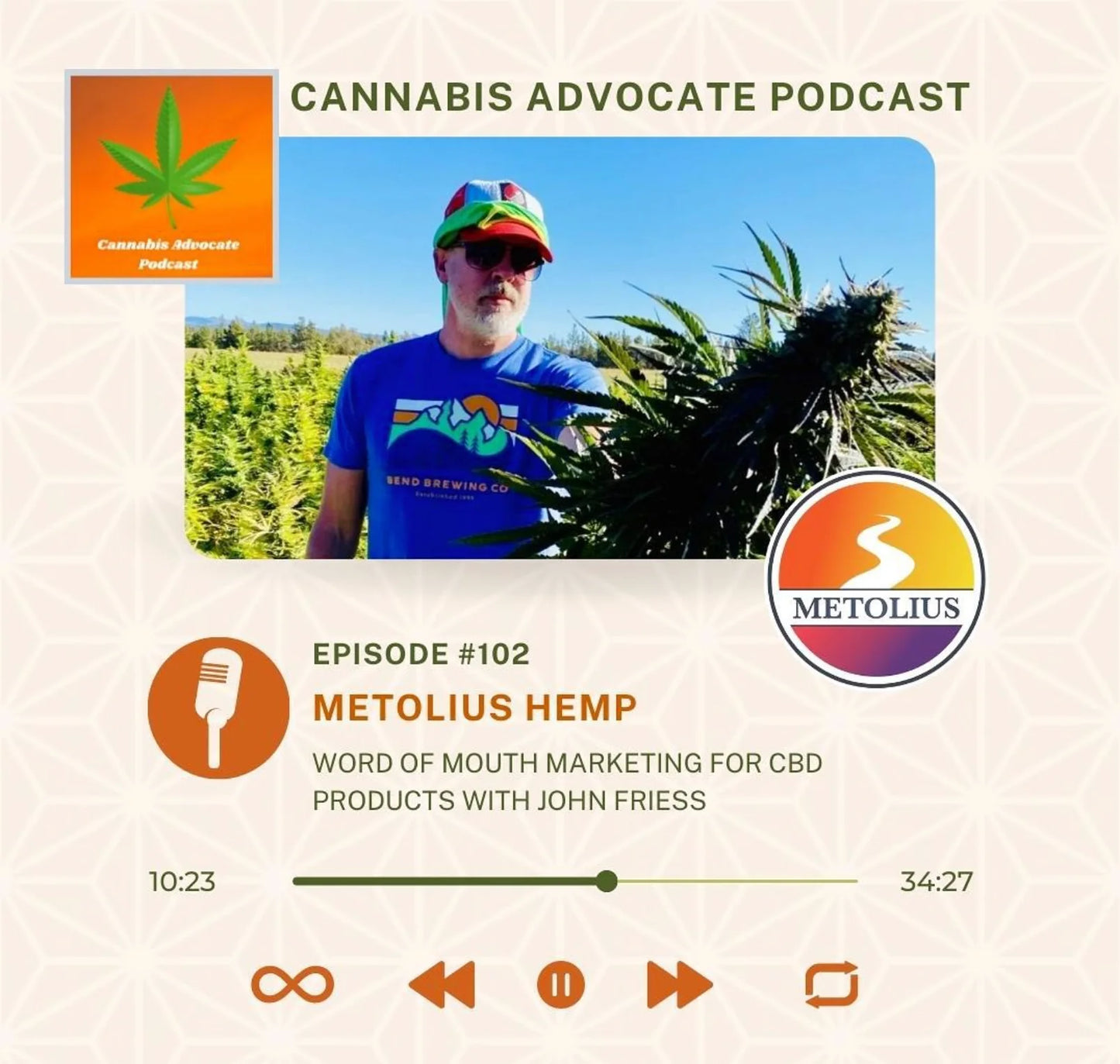METOLIUS PRODUCT FAQ & ANSWERS
We crafted our Frequently Asked Questions (FAQ), and their answers, based on the most commonly asked questions amongst our customers and then backed them with references from scientific studies and published findings. You can easily learn about the various hemp materials utilized in our product development processes, about their purpose and impact. Please simply click on the FAQ you may want feedback on and the link will take you to the answer.
WHAT IS CBD? WHAT IS CBG? WHAT IS CBN?
WHAT IS CBD FLOWER? WHAT IS CBG FLOWER?
WHAT IS FULL SPECTRUM CBD DISTILLATE?
WHAT IS CBD ISOLATE? WHAT IS CBG KIEF?
WHAT IS THE ENDOCANNABINOID SYSTEM?
WHAT ARE ENDOCANNABINOID RECEPTORS?
HOW DOES THE ENDOCANNABINOID SYSTEM ACHIEVE HOMEOSTASIS?
HOW DO CBD & CBG INTERACT WITH THE ENDOCANNABINOID SYSTEM?
WHAT IS THE 'METOLIUS MAGIC'?
WHAT IS THE 'UNIVERSAL CBX SYMBOL'?
WHAT IS CBD?
CBD, or cannabidiol, is a natural compound found in the cannabis plant. It's one of over 100 compounds called cannabinoids, which interact with our body's endocannabinoid system. Unlike THC, another well-known cannabinoid, CBD is not psychoactive, meaning it doesn't cause a "high" sensation. Instead, it's known for its potential therapeutic benefits, which include:
- Pain relief: CBD has been shown to have pain-relieving properties, which makes it a popular alternative to traditional pain medications.
- Anxiety and depression: Some studies suggest that CBD may help reduce symptoms of anxiety and depression by interacting with serotonin receptors in the brain.
- Neuroprotective effects: CBD has been shown to have neuroprotective properties, which means it may help protect the brain and nervous system from damage.
- Anti-inflammatory effects: CBD has been shown to have anti-inflammatory properties, which makes it a potential treatment for conditions like arthritis, inflammatory bowel disease, and other inflammatory conditions.
It's important to note that while CBD shows promise as a potential treatment for various conditions, more research is needed to fully understand its effects on the body. Additionally, the use of CBD is not recommended for everyone, especially those who are pregnant, breastfeeding, or taking certain medications.
If you're interested in trying CBD, it's important to speak with a healthcare provider to determine if it's safe for you and to ensure you're using a high-quality product. Look for CBD products that have been third-party tested, and be cautious of companies that make bold or unsupported health claims.
REFERENCES:
1. Devinsky, O., Cross, J. H., Laux, L., Marsh, E., Miller, I., Nabbout, R., … & Wright, S. (2017). Trial of cannabidiol for drug-resistant seizures in the Dravet syndrome. New England Journal of Medicine, 376(21), 2011-2020.
2. Blessing, E. M., Steenkamp, M. M., Manzanares, J., & Marmar, C. R. (2015). Cannabidiol as a potential treatment for anxiety disorders. Neurotherapeutics, 12(4), 825-836.
3. Ibeas Bih, C., Chen, T., Nunn, A. V., Bazelot, M., Dallas, M., & Whalley, B. J. (2015). Molecular targets of cannabidiol in neurological disorders. Neurotherapeutics, 12(4), 699-730.
4. Nagarkatti, P., Pandey, R., Rieder, S. A., Hegde, V. L., & Nagarkatti, M. (2009). Cannabinoids as novel anti-inflammatory drugs. Future Medicinal Chemistry, 1(7), 1333-1349.
WHAT IS CBG?CBG (cannabigerol) is a compound found in cannabis plants, along with other cannabinoids like THC and CBD. It is a non-psychoactive compound, meaning it won't get you high like THC does.
CBG has been the subject of increasing interest in recent years, as researchers have begun to study its potential health benefits. Some studies suggest that CBG may have anti-inflammatory and antibacterial properties, and may help with conditions like glaucoma, inflammatory bowel disease, and Huntington's disease.
While more research is needed to fully understand the potential benefits of CBG, some people use it as a dietary supplement or incorporate it into their wellness routine. CBG is available in various forms, including oils, capsules, and tinctures.
If you're considering using CBG for its potential health benefits, it's important to speak with your healthcare provider first. They can help you determine whether CBG is right for you and can provide guidance on dosage and potential interactions with any medications you may be taking.
Overall, while CBG is a relatively new area of study, it shows promise as a potential health supplement. With further research and study, we may learn more about its potential benefits and how it can best be used to support overall wellness.
REFERENCES:
1. Aizpurua-Olaizola, O., Soydaner, U., Öztürk, E., Schibano, D., Simsir, Y., Navarro, P., ... & Usobiaga, A. (2016). Evolution of the cannabinoid and terpene content during the growth of Cannabis sativa plants from different chemotypes. Journal of natural products, 79(2), 324-331.
2. Cascio, M. G., Gauson, L. A., Stevenson, L. A., Ross, R. A., & Pertwee, R. G. (2010). Evidence that the plant cannabinoid cannabigerol is a highly potent α2-adrenoceptor agonist and moderately potent 5HT1A receptor antagonist. British Journal of Pharmacology, 159(1), 129-141.
3. Romano, B., Pagano, E., Orlando, P., Capasso, R., Cascio, M. G., Pertwee, R. G., & Borrelli, F. (2016). Pure cannabigerol and a Cannabis sativa extract with high cannabigerol content inhibit colon carcinogenesis in vivo and in vitro. Pharmacological Research, 113(Pt A), 199-208.
4. Oláh, A., Markovics, A., Szabó-Papp, J., Szabó, P. T., Stott, C., Zouboulis, C. C., & Bíró, T. (2016). Differential effectiveness of selected non-psychotropic phytocannabinoids on human sebocyte functions implicates their introduction in dry/seborrhoeic skin and acne treatment. Experimental Dermatology, 25(9), 701-707.
WHAT IS CBN?CBN, or cannabinol, is a lesser-known cannabinoid that is found in the cannabis plant. Unlike THC, which is known for its psychoactive effects, CBN is non-psychoactive, meaning it won't get you high. Here's what you need to know about CBN and what it does.
CBN is a cannabinoid that is produced when THC is exposed to air or heat. This means that aged cannabis or cannabis that has been heated or cooked may contain higher levels of CBN. CBN has been found to have a range of potential health benefits, although more research is needed to fully understand its effects. Some studies suggest that CBN may have analgesic (pain-relieving), anti-inflammatory, and antibacterial properties. It may also have potential as a sleep aid, as some people report feeling drowsy after using CBN.
CBN can be consumed in a variety of ways, including through smoking or vaporizing aged cannabis, or through CBN-infused products like tinctures or edibles or powdered-drink forms. If you're interested in trying CBN, it's a good idea to start with a low dose and gradually increase it until you find the dose that works best for you.
REFERENCES:
1. Andre, C. M., Hausman, J. F., & Guerriero, G. (2016). Cannabis sativa: The plant of the thousand and one molecules. Frontiers in plant science, 7, 19.
2. Cascio, M. G., & Pertwee, R. G. (2014). Known pharmacological actions of delta-9-tetrahydrocannabinol and of four other chemical constituents of cannabis that activate cannabinoid receptors. In Handbook of Cannabis (pp. 693-720). Oxford University Press.
3. Mahadevan, A., & Siegel, C. (2017). A case of cannabis-induced seizure precipitated by piriformis syndrome. Epilepsy & behavior case reports, 7, 44-46.
4. National Center for Complementary and Integrative Health. (2020, September). Cannabis (Marijuana) and Cannabinoids: What You Need To Know.
WHAT IS CBD FLOWER?CBD Flower is sourced from either Hemp or Cannabis plants that produce low quantities of THC. This type of smokable Hemp is non-psychoactive, meaning it does not get you ‘high.’ The federal limit for THC in any CBD product is <.03%. In lieu of the psychoactive effects, consumers turn to CBD flower for an abundance of wellness benefits & calming properties.
CBD is known to help treat epilepsy, anxiety, depression, nausea, pain, insomnia and stress. CBD has gained extreme popularity over the last decade in the health, wellness, cosmetics & skincare, and pet industries.
WHAT IS CBG FLOWER?CBG, short for Cannabigerol, is another Cannabinoid that's organically derived from Hemp or Cannabis. It is known as the 'Grandmother' of all phytocannabinoids, as it is typically the first compound to form, which then leads to THC, CBD, and other cannabinoids to develop in the plant.
Originally discovered in the 1960's, CBG was one of the least studied cannabinoids in Cannabis and until recently, one of the rarest - a typical Cannabis plant contains less than 1% CBG . Modern developments in Industrial Hemp have allowed us to isolate and now farm strains that are bountifully-rich in CBG.
Using these new strains, Hemp companies like Metolius are able to grow plants that primarily produce CBG as the main Cannabinoid, from which we harvest buds that are then dried and cured to create smokable-hemp flower.
Similar to CBD and thought to be even more effective, CBG is revered for its pain-relieving properties, as well as anti-inflammatory, anti-nausea, antibacterial, and stress relief benefits. CBG may just be the most medicinally-impactful cannabinoid known to man.
WHAT IS FULL SPECTRUM CBD DISTILLATE?Full spectrum CBD distillate is a type of hemp extract that contains a wide range of cannabinoids, including CBD, as well as other beneficial compounds such as terpenes and flavonoids. Unlike CBD isolate, which contains only pure CBD, full spectrum CBD distillate preserves the natural synergy between different cannabinoids and terpenes, which work together to produce what's known as the "entourage effect."
The entourage effect is the idea that these different compounds work together to produce a more powerful effect than any single compound alone. This means that full spectrum CBD distillate may be more effective than CBD isolate at providing therapeutic benefits, such as reducing anxiety, relieving pain, and improving sleep.
Full spectrum CBD distillate is used in a variety of products, such as tinctures, capsules, and topicals. These products are used to help manage a range of conditions, including anxiety, depression, chronic pain, inflammation, and more. They are often chosen by people who want a natural, plant-based alternative to traditional medications.
It's important to note that while full spectrum CBD distillate is generally considered safe and non-intoxicating, it may contain trace amounts of THC, which is the compound that produces a "high" in marijuana. However, these amounts are usually very low and unlikely to cause any psychoactive effects.
Overall, full spectrum CBD distillate is a natural and effective option for people who want to manage their health and wellness with the help of cannabinoids and other plant-based compounds. As always, it's important to consult with a healthcare professional before using any new product or supplement.
REFERENCES:
1. Gallily, R., Yekhtin, Z., & Hanuš, L. O. (2015). Overcoming the bell‐shaped dose‐response of cannabidiol by using cannabis extract enriched in cannabidiol. Pharmacology & Pharmacy, 6(02), 75-85.
2. Shannon, S., Lewis, N., Lee, H., & Hughes, S. (2019). Cannabidiol in anxiety and sleep: A large case series. The Permanente Journal, 23.
3. Russo, E. B. (2019). The case for the entourage effect and conventional breeding of clinical cannabis: no “strain,” no gain. Frontiers in Plant Science.
WHAT IS CBD ISOLATE?Isolate is CBD in its purest form (99%). Using traditional methods to extract only the CBD Cannabinoid, stripping away all other compounds and removing phytocannabinoids (including those unwanted psychoactive substances such as THC), separating other plant matter, we are left with only CBD compounds from the Hemp plant.
CBD isolate is a crystalline powder that is derived from the hemp plant. It is made by extracting all of the other compounds from the plant, leaving only pure CBD behind. CBD isolate is a popular form of CBD because it is very versatile and can be used in many different ways.
CBD isolate is often used to create CBD products, such as tinctures, edibles, and topicals. It can also be used as an ingredient in skincare products, as well as in vape juices. Many people also choose to use CBD isolate on its own, either by mixing it with a carrier oil or by adding it to food and drinks.
One of the benefits of using CBD isolate is that it contains no THC, which is the compound in cannabis that can make you feel high. This makes CBD isolate a good option for people who want to experience the potential benefits of CBD without any psychoactive effects.
CBD isolate may help with a variety of conditions, such as pain, anxiety, and insomnia. However, more research is needed to fully understand how it works and what its potential benefits are.
REFERENCES:
1. Kramar, C., Loureiro, M., Renard, J., Rosen, L. G., Schaeffer, E. L., & Gass, J. T. (2020). Effects of chronic cannabidiol treatment in the rat chronic unpredictable mild stress model of depression. Biomolecules & Therapeutics, 28(4), 296-306.
2. Shannon, S., Lewis, N., Lee, H., & Hughes, S. (2019). Cannabidiol in anxiety and sleep: A large case series. The Permanente Journal, 23.
3. Gallily, R., Yekhtin, Z., & Hanuš, L. O. (2015). Overcoming the bell‐shaped dose‐response of cannabidiol by using cannabis extract enriched in cannabidiol. Pharmacology & Pharmacy, 6(2), 75-85.
4. Carrier, E. J., Auchampach, J. A., & Hillard, C. J. (2006). Inhibition of an equilibrative nucleoside transporter by cannabidiol: A mechanism of cannabinoid immunosuppression. Proceedings of the National Academy of Sciences, 103(20), 7895-7900.
WHAT IS CBG KIEF?
CBG kief is a product made by sifting trichomes from the cannabis plant to produce a highly concentrated form of the cannabinoid known as cannabigerol (CBG). This form of cannabis extract is becoming increasingly popular due to its potential therapeutic benefits and unique effects. CBG is a non-psychoactive cannabinoid, meaning it does not produce the "high" commonly associated with cannabis use. Instead, CBG is known for its potential anti-inflammatory, analgesic, and neuroprotective properties. CBG kief is often used to create extracts and edibles that can be used to help alleviate symptoms associated with a variety of medical conditions, including pain, anxiety, and inflammation. Additionally, CBG is believed to have potential as a treatment for conditions such as glaucoma, Huntington's disease, and cancer, among others. However, more research is needed to fully understand the therapeutic potential of CBG and its specific effects on the body.
REFERENCES:
1. Cannabigerol Action at Cannabinoid CB1 and CB2 Receptors and at CB1-CB2 Heteroreceptor Complexes. published in the journal Cannabis and Cannabinoid Research.
2. Potential Therapeutic Effects of Cannabigerol in Neurological and Neuropsychiatric Disorders, published in the journal Biomolecules.
WHAT IS THE ENDOCANNABINOID SYSTEM? WHAT ARE ENDOCANNABINOID RECEPTORS & WHAT DO THEY DO? HOW DOES THE ENDOCANNABINOID SYSTEM ACHIEVE HOMEOSTASIS? HOW DO CBD & CBG INTERACT WITH THE ENDOCANNABINOID SYSTEM? WHAT IS THE 'METOLIUS MAGIC'? WHAT IS THE 'UNIVERSAL CBX SYMBOL'?
You’ve probably heard the term Cannabinoids - organic compounds found in the Hemp & Cannabis plants, associated with the physical & mental effects we feel. These include THC, CBD, CBG, CBN and many other known Cannabinoids. But how does our body actually feel and process these compounds? That is what our Endocannabinoid System is responsible for!
The Endocannabinoid System (ECS) is a complex network of cellular receptors. It exists and is active in all of our human bodies, even if we don’t use any kind of Cannabis or Hemp. This system plays a role in signaling the body to regulate and maintain a variety of functions. While much is still being discovered about the ECS, research shows that the system plays a vital role in sleep, mood, appetite, memory and fertility. Our bodies actually produce Endocannabinoids naturally as needed, which help keep things stable and operating smoothly for us all.
These cellular receptors are found throughout the human body, to which Endocannabinoids/Phytocannabinoids bind in order to create a reaction from the corresponding cellular receptors. Each receptor is associated with a different biological function. The two primary ECS Receptors that are the most studied are the CB1 & CB2 Receptors.
CB1 Receptors call the central nervous system home, while most CB2 receptors are found in your peripheral nervous system where your immune cells reside. Endocannabinoids (biologically-produced and native to the body) as well as Phytocannabinoids received from the intake of Hemp or Cannabis (CBD, CBG etc) bind with these receptors to deliver different effects, based on where they are located in the body. CB1 receptors located in the central nervous system (spinal, cranial etc) that receive cannabinoids can then target pain, promote brain function and more. Those that target your CB2 receptors may help relieve nausea, inflammation, infections etc that are linked to the function of a healthy and active immune system.
The body’s internal Endocannabinoid System is kind of like a built in regulator, helping us find balance and harmony in many different forms. Research over the last two decades has shown the ECS plays a vital role in regulating: mood, sleep, appetite, digestion, chronic pain/inflammation, immune response, active memory, cardiovascular system, muscle & bone growth, skin & nerve function, liver function and stress.
Quite the list of responsibilities! When all of these bodily functions, systems and organs are working properly in synergy, our bodies are in a state known as Homeostasis. Homeostasis is essentially a stable and well-balanced internal environment. If some sort of external environmental factor affects you such as an injury or illness, your Endocannabinoid System kicks in to help save the day and return your body to a state of harmonious Homeostasis.
Recent studies have shown that CBD and CBG interact a bit differently with our Endocannabinoid System. While THC Phytocannabinoids typically only bind to our CB1 & CB2 receptors, it has been shown that CBD binds to both the CB1 and CB2 receptors as well as interacting with other biological systems in our bodies to provide a wide array of wellness benefits.
CBD & THC actually have an opposite relationship when it comes to ECS receptors, as CBD is an inverse agonist to CB1 receptors; meaning CBD actually has the potential to curb negative side effects of THC when taken in unison, as it can trigger a reverse reaction from CB1 receptors.
CBG is also a Phytocannabinoid that binds with both the CB1 & CB2 receptors, triggering effects from the CNS (central nervous system) to relieve pain and inflammation, as well as encouraging a healthy immune response.
Our proprietary Metolius CBD & CBG blends, along with the unique enhancements of Isolate, Distillate & Kief deliver a robust flavor experience and powerfully calming effect. River Rolls are packed with tasty terpenes, which provides a full-bodied, smooth and balanced profile.
When consumed simultaneously, CBG & CBD work together to provide pain relief, as well as potent relaxation and a sense of wellbeing. Studies have shown positive responses in anxiety & depression treatment, as well as inflammation reduction.
Collectively known as CBX, Hemp-Derived CBD & CBG are rapidly gaining popularity in the consumable hemp products industry. CBX is the universal label for Hemp-derived CBD & CBG that is THC non-detect, meaning it is non-psychoactive.
There is always less than .3% THC in all of our Metolius Hemp products. Please look for our Universal CBX Symbol, letting you know the product is non-psychoactive. You get all the chill, without the unwanted thrill!
Emerging research shows that when taken in unison, CBD & CBG produce remarkably potent synergistic effects. The powerful properties of CBD produce calm and stress-relief, combined with CBG’s benefits for pain, inflammation and nausea, create a harmonious formula for consumers.
